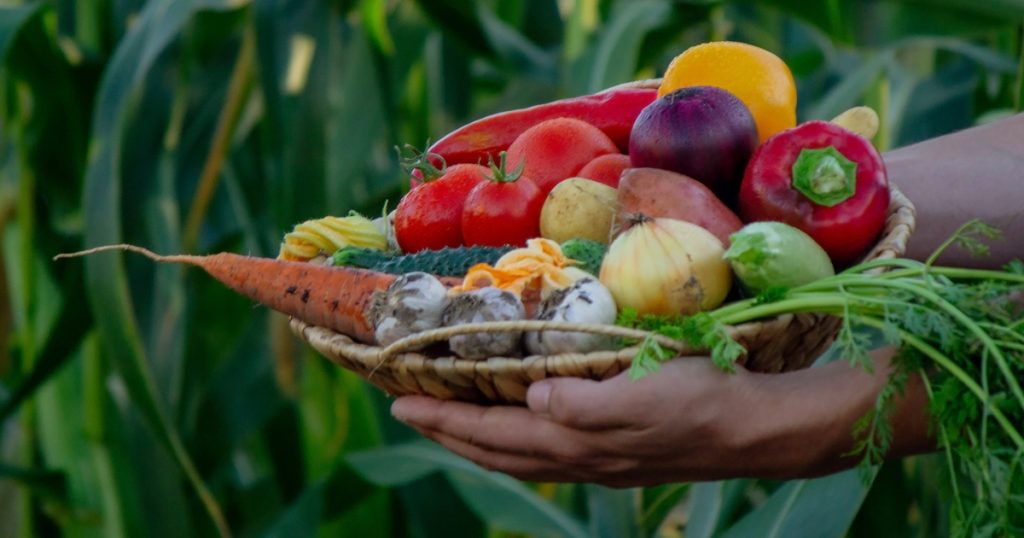
A perspective study published in Nature Food argues that global agroecological frameworks and research must better integrate water and aquatic foods if they are to effectively drive food system transformation.
While agroecology has long been promoted as a holistic approach to food system sustainability, the study reveals that key resources – such as water and aquatic foods – remain largely absent in both high-level discourse and investments.
Researchers reviewed the 13 agroecological principles proposed by the UN High Level Panel of Experts on Food Security and Nutrition (HLPE), endorsed by the Committee On World Food Security (CFS), alongside academic literature and widely used monitoring frameworks. They found that these principles and the literature rarely reference water or aquatic foods, and that four key frameworks used in agroecology evaluations mostly focus on land-based systems, missing critical aquatic dimensions. An open electronic consultation to obtain inputs on the proposed changes to the 13 HLPE principles was conducted in 2023. The results feed into the study.
Key findings:
- Water and aquatic foods are foundational to food security and nutrition, yet are poorly represented in agroecological literature and principles.
- The study proposes revised wording for 6 of the 13 HLPE agroecological principles, to explicitly include water, aquatic foods, aquatic and marine environments, and non-farming food producers such as fishers and foragers.
- A landscape approach that includes land-to-seascape connectivity is essential for resilient, inclusive food systems.
- Frameworks assessing agroecological performance often focus on farm-level metrics and exclude aquatic ecosystems, downstream water impacts, and aquatic biodiversity.
The authors argue that integrating water and aquatic foods into agroecology can accelerate progress toward sustainable food systems, particularly in the face of climate change, biodiversity loss and food insecurity.
Policy implications:
To advance food system transformation, the authors recommend three cross-sectoral actions:
- Explicitly recognize the contributions of water and aquatic foods in agroecological principles and practice.
- Broaden the definition of food producers to include fishers, foragers, pastoralists and others beyond farmers.
- Address land-to-seascape connectivity and feedbacks between water resources and agroecological performance.
The research, conducted under the Transformative Partnership Platform on Agroecology and supported by the CGIAR Initiative on Agroecology, CGIAR Initiative on Aquatic Foods, and the IDRC AQUADAPT programme, urges institutions, funders and policymakers to adopt more inclusive, water-aware strategies in agroecological transitions.
Quotes
No water, no food. Agriculture is the biggest user and polluter of water, so ensuring water is at the heart of agroecology is essential for a just and sustainable food future.
Matthew McCartney
Research Group Leader – Sustainable Water Infrastructure and Ecosystems, IWMI
Agroecology offers a bold vision for transforming food systems – and a very actionable one – because it has a set of explicit principles. Keeping these principles alive in response to scientific scrutiny, as done here for including water and aquatic foods, is vital for them to continue to have impact. Elevating the role of water, aquatic biodiversity, and diverse food producers will unlock new pathways toward sustainability, equity, and resilience.
Fergus L. Sinclair
Professor Emeritus at Bangor University, Co-convenor for the Agroecology TPP, Project Team Lead for the HLPE report on Agroecology
As agroecology gains traction with decision-makers, donors, and researchers, it’s vital that its holistic spirit is not lost. Our proposed revisions help ensure that land-to-seascapes, aquatic biodiversity, and the voices of fishers and other off-farm food producers are fully integrated into agroecological policy and investment.
Sarah Freed
Scientist, Alliance of Bioversity International and CIAT
Agroecological literature has surged in recent decades – but still largely overlooks water, aquatic foods, and the role of fishers and other food producers. Meanwhile, as a social movement, agroecology is already embracing these crucial dimensions. It’s time high-level institutions and actors caught up.
Michaela Guo Ying Lo
Postdoctoral researcher, DICE, University of Kent
Water links people and ecosystems, and as droughts and floods grow more extreme, managing water in agriculture is key to productive farms, safer communities, and cleaner seas.
Mark Smith
Director-General, IWMI
Aquatic foods provide around 20% of the animal-source protein intake of 3.3 billion people today and global demand is expected to nearly double by 2050.
Eddie Allison
Principal Scientist at World Fish
Media contact
For more information or to arrange interviews, contact (f.ricci@cifor-icraf.org; a.lalani@cifor-icraf.org).
About the study
This research was conducted under the Transformative Partnership Platform on Agroecology and supported by the CGIAR Initiative on Agroecology and CGIAR Initiative on Aquatic Foods, with funding from the European Union, France, Switzerland, Liechtenstein, and the McKnight Foundation. Additional funding came from Global Affairs Canada through the IDRC AQUADAPT programme.
Authorship
Sarah Freed1,2, Michaela Lo3, Matthew McCartney4, Eddie Allison1, Mark Smith4, Olivier Joffre5 and Fergus Sinclair6,7
1 World Fish
2 The Alliance of Bioversity and CIAT
3 University of Kent
4 International Water Management Institute
5 Deutsche Gesellschaft für Internationale Zusammenarbeit (GIZ)
6 Bangor University
7 CIFOR-ICRAF













